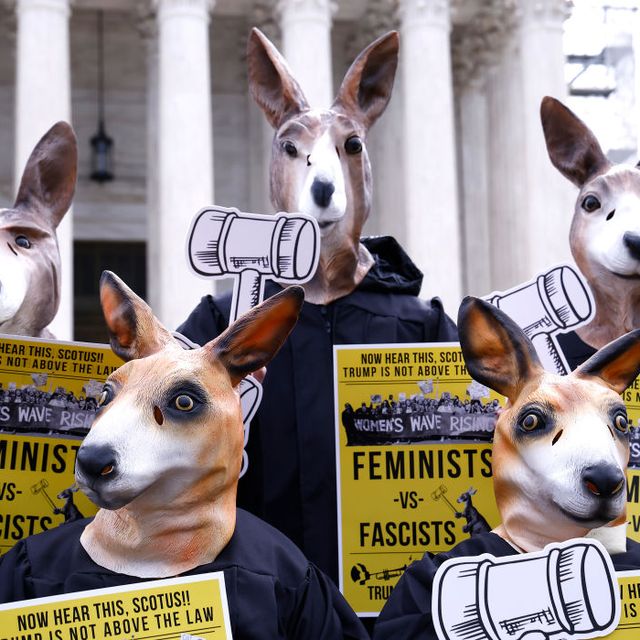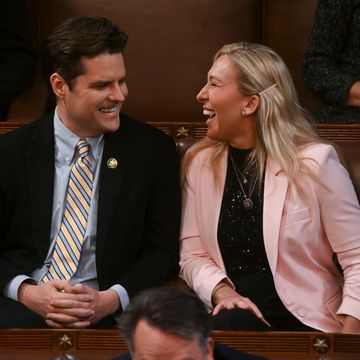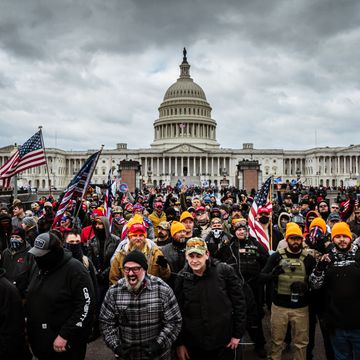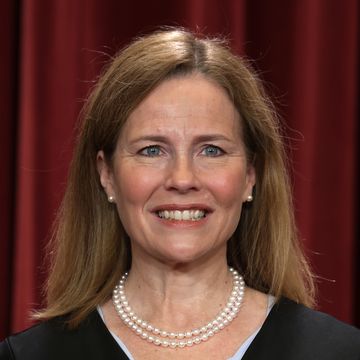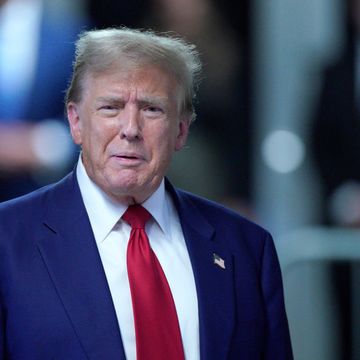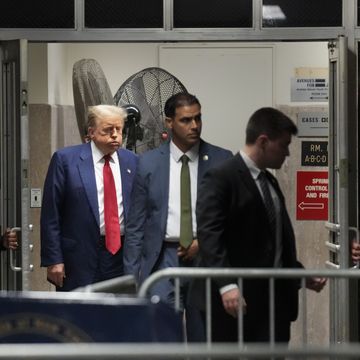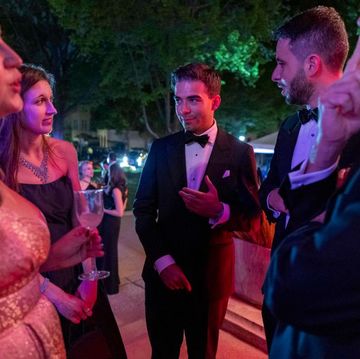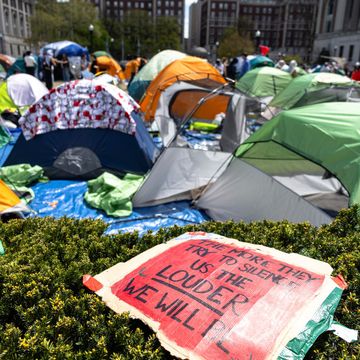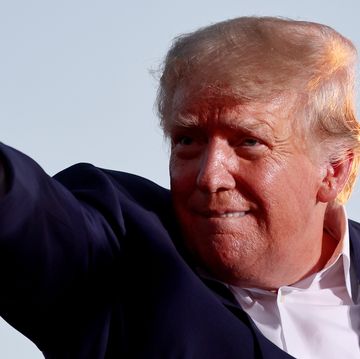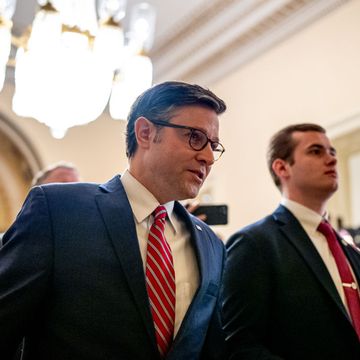WASHINGTON—There was a guy in a three-cornered hat. Usually these guys are attached to MAGA-adjacent gatherings, but this guy was clearly aligned against the former president*. And there was a Palestinian flag, for reasons that eluded me. (Maybe they just show up any time there’s a crowd of more than three people gathered in one place these days.) But the brass band was a very nice touch, playing jazzy tunes in the bright sunshine. On the front steps of the Supreme Court building, which is where the day’s business usually starts and ends, there were far more people making far more noise on Wednesday, when the Idaho abortion case was argued, than on Thursday, when the Supreme Court took up—God knoweth why—the case of Shoot ’Em on Fifth Avenue v. United States Constitution, aka Trump v. United States, and the facially absurd notion of absolute presidential immunity from the criminal law. I guess people are more moved to protest medevac-ing pregnant women out of state to keep them from dying than they are discussing hifalutin constitutional principles. (This is something I talked about a couple weeks ago.) Judging by what happened inside the building on Thursday, I’d say those people have a good argument.
(I will applaud the group of people who showed up in kangaroo suits.)
In brief, I’d say the Court will deny that the president has absolute immunity from the criminal law, though I would caution that there are at least two votes for it—Justices Clarence Thomas and Samuel Alito—and that Justice Brett Kavanaugh is a toss-up on the question. My best guess is that the Court will kick this back to the lower courts to consider some of the transparently insincere “issues” raised by Louisiana assistant solicitor general John Sauer, who was there representing El Caudillo del Mar-a-Lago’s side of things. Most conspicuous of these was the distinction Sauer drew between “official acts” and “private acts.” This will, of course, prevent the case from coming to trial before the November election, which was the whole sub rosa reason for the Court to take this case in the first place.
Sauer conceded to Justice Amy Coney Barrett that the former president* would be criminally liable for “private acts”—e.g., hiring outside attorneys to press his fake-electors scheme. (Adios, Sidney Powell.) Unfortunately, Sauer’s definition of “official acts” apparently stretches to Jupiter. For example, under questioning by Justice Sonia Sotomayor, Sauer argued that the fake-electors scheme could be an “official act.”
SOTOMAYOR: What is plausible about the president insisting and creating a fraudulent slate of electoral candidates, assuming you accept the facts of the complaint on their face? Is that plausible that that would be within his right to do?
SAUER: Absolutely, your honor. We have the historical precedent we cite in the lower courts of President Grant sending federal troops to Louisiana and Mississippi in 1876 to make sure that the Republican electors got certified.
I am no great legal mind, but I think using federal troops to protect Black voters from white mobs in a country only a decade removed from a civil war is not the same as concocting a fraud to overturn an election as an adjunct to an insurrection you helped incite. Bad Historical Theater never closes. But when Justice Elena Kagan asked Sauer if a president’s organizing a coup could be an “official act,” my brain got out of the business for a while.
KAGAN: How about if a president orders the military to stage a coup?
SAUER: Now, if one adopts, for example, the Fitzgerald test...that might well be an official act and he would have to be, as I’ll say in response to all these kinds of hypotheticals, has to be impeached and convicted before he can be criminally prosecuted.
KAGAN: Let’s say this president who ordered the military to stage a coup, he’s no longer president...he wasn’t impeached, he couldn’t be impeached. But, but he ordered the military to stage a coup. And you’re saying that’s an official act?...That’s immune?
SAUER: I think it would depend on the circumstances whether it was an official act. If it were an official act, again, he would have to be impeached and convicted.
KAGAN: Well, what does that mean, depend on the circumstances? He was the president. He is the commander in chief. He talks to his generals all the time. And he told the generals: I don’t feel like leaving office, I want to stage a coup. Is—is—is that immune?
SAUER: If it’s an official act, there needs to be impeachment and conviction beforehand...
KAGAN: Is it an official act?
SAUER: On—on the way you described that hypothetical, it could well be. I—I just don’t know. You’d have to—again, it’s a fact-specific, context-specific determination that it’s contemplating.
KAGAN: That answer sounds to me as though it’s like, “Yeah, under my test, it’s an official act, but that sure sounds bad, doesn’t it?”
But the only colloquy that truly touched the profound issues under discussion came when Alito and Sotomayor clashed over what had happened in the long aftermath of the 2020 election, including the actual violence on January 6, 2021. The hardcore conservatives on the panel, most notably Alito, Kavanaugh, and Justice Neil Gorsuch, spent all three hours of the arguments resolutely ignoring what actually happened and expressing their deep concern for what might happen to future presidents. Sotomayor insisted on discussing the concrete past and not some gauzy concern for the future presidency of Ivanka Trump. In doing so, she managed to be eloquent on a day in which that was discouraged.
ALITO: If an incumbent who loses a very close, hotly contested election knows that a real possibility after leaving office is not that the president is going to be able to go off into a peaceful retirement, but that the president may be criminally [prosecuted] by a bitter political opponent, will that not lead us into a cycle that destabilizes the functioning of our country as a democracy?
SOTOMAYOR: A stable democratic society needs the good faith of its public officials, correct?...And that good faith assumes that they will follow the law? Now, putting that aside, there is no fail-safe system of government, meaning we have a judicial system that has layers and layers and layers of protection for accused defendants in the hopes that the innocent will go free. We fail routinely, but we succeed more often than not. In the vast majority of cases, the innocent do go free. Sometimes they don’t, and we have some post-conviction remedies for that. But we still fail. We’ve executed innocent people. Having said that, Justice Alito went through step by step all of the mechanisms that could potentially fail. In the end, if it fails completely, it’s because we destroyed our democracy on our own, isn’t it.
That caught me up short. Suddenly, I remembered what Abraham Lincoln said, speaking to an audience in Springfield, Illinois, and, even in 1838, seeing clearly the cataclysm that was coming down the road.
At what point shall we expect the approach of danger? By what means shall we fortify against it?—Shall we expect some transatlantic military giant, to step the Ocean, and crush us at a blow? Never!—All the armies of Europe, Asia and Africa combined, with all the treasure of the earth (our own excepted) in their military chest; with a Buonaparte for a commander, could not by force, take a drink from the Ohio, or make a track on the Blue Ridge, in a trial of a thousand years.
At what point then is the approach of danger to be expected? I answer, if it ever reach us, it must spring up amongst us. It cannot come from abroad. If destruction be our lot, we must ourselves be its author and finisher. As a nation of freemen, we must live through all time, or die by suicide.
We have done all this to ourselves, through fear and anger, but mostly through inattention to the job of self-government. We have no alibi. Complicity is all around us. Assisted suicide is still a crime, and probably not an “official act,” but who the hell knows anymore?

Charles P Pierce is the author of four books, most recently Idiot America, and has been a working journalist since 1976. He lives near Boston and has three children.
